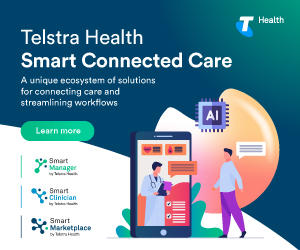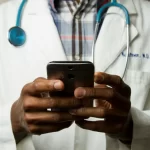Report links data-driven technology to better healthcare
Customer-centricity, innovation, partnerships, collaboration, data and technology will all be essential factors in the success of Australian healthcare organisations in a competitive, demanding future, a new study has found.
Regulatory requirements, fierce competition, and rapidly emerging technologies are creating new complexities for those operating in the Australian healthcare sector. But according to the report released by KPMG, Healthcare reimagined: Innovation trends, predictions and actions for healthcare leaders, technology innovations are spearheading change, both in terms of consumer expectations and healthcare service offerings.
The new healthcare ecosystem
According to the report, new healthcare ecosystem is data-driven, connected and highly digitised, with the patient at the heart of its operations. We will also continue to see a ‘healthcare on demand’ culture’ with patients that see healthcare as a service, and who expect a more personalised and digitised experience. At the same time, IoT will play a more significant role in enabling flexible, outcome-based care, including wearables, digestible and implantables.
There are growing possibilities for connected tools to empower consumers, to provide greater transparency and choice, as well as fulfilling consumer expectations around the desire for ‘anywhere, anytime’ monitoring, diagnosis and treatment, the report stressed.
At the same time, it highlighted new market entrants and established providers are creating platforms that enable consumers to access information, advice and treatment when and where it suits them. This trend coincides with pressure by healthcare funders to ensure greater transparency in relation to quality of care.
Meanwhile the report saw the wider potential of digital platforms that can engage consumers in a variety of ways including tracking medical progress, treatment adherence, reminders and scheduling, and communications, as well as providing the ability to capture more comprehensive data for analysis and ongoing optimisation.
Data-driven personalisation was further highlighted as a key enabler of the future of healthcare. This can be achieved by leveraging patient data to drive predictive, preventative and personalised health and healthcare delivery – to find the right solution for the right patient at the right time, the report stated.
On top of this, the report further highlighted that data analytics is opening up the information stored in the unstructured clinical notes, deep within the medical record, to allow clinicians to draw conclusions on the best treatment for their patient when there is no published best practice.
Key report takeaways
- Foster a culture of innovation within healthcare – with a multi-faceted approach to meet continual challenges.
- Build a healthcare workforce that is able to quickly adapt and evolve.
- Be patient-centric: every step of a patient’s healthcare journey must involve optimal care, operational efficiency and connectivity.
- Collaborate: remaining relevant in the future will require deep collaboration between healthcare providers, with silos removed between organisations and departments.
- Embrace data and the right technology to collect, analyse and share this data in a secure way.









